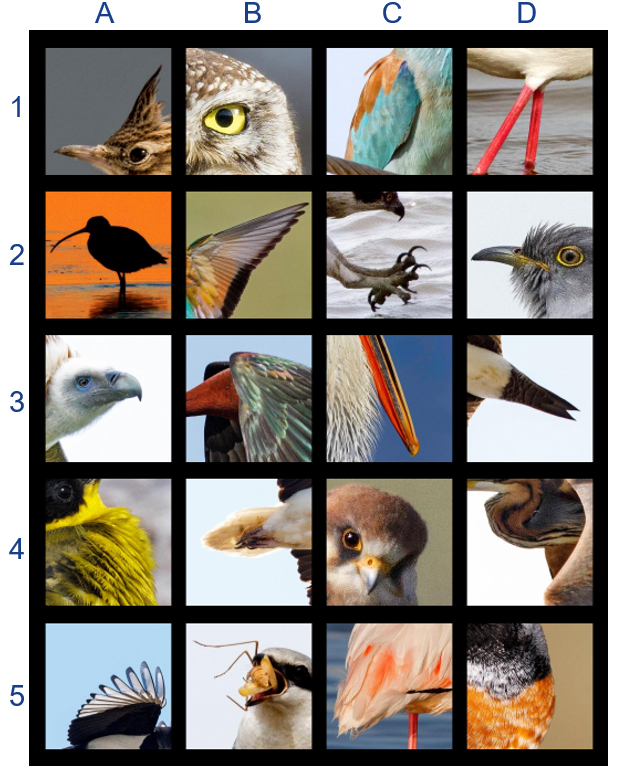Welcome to BirdWING
BirdWING (Birdwatching in Northern Greece) has been set up to raise awareness of birds in Greece and to raise money for the conservation and restoration of bird habitat in the region. Birdwing has supporters from all over the world.
Newsletter 29 - Spring 2020
This newsletter comes to you at an unprecedented time and we hope you are all keeping well and managing to cope with the changes and restrictions to lives in whichever country you are in. Birds, wildlife, and the environment may well be benefitting from some of these changes but there are still unfortunately political threats to the protected places in Greece which we will outline below. We have positive news however about actions that have taken place this spring and hope that, when activities and travel resume again, we will be able to bring you news of other projects that are up and running. Don’t miss our prize competition too below!
Anti-poison dogs!
The funds raised by Birdwing supporters for the anti-poison dog units in Greece have been passed on to the Hellenic Ornithological Society/Birdlife Greece to enable the valuable work to continue in protecting birds, such as the endangered Egyptian Vulture, from poisoning. Since our last newsletter further donations were received and we were able to give €5269 to fund the anti-poison dog units in Northern Greece.
Their HOS representative, Roula Trigou, thanked Birdwing supporters for their donations and sent these photos of anti-poison dogs, Kuki and Ioli, showing their appreciation too! Kuki and handler Dimitris work in the Meteora region of Greece and Ioli with handler Victoria are based in the Florina region.
Poisoning in Greece still occurs for several reasons. Despite being illegal, poisoned baits and carcasses are put out with the aim of killing foxes, jackals, wolves and other animals seen as a threat to livestock. Research has shown people with hunting dogs will use poison to clear foxes from an area to be used for training, to prevent the dogs being distracted. Also, local rivalries between shepherds have led to attempts by each to poison the other’s dogs. When these events happen in the territory of a breeding pair of Egyptian Vultures the results are potentially disastrous. This is the number one threat to the continuation of the species as a Greek and, indeed, as a Balkan breeding bird.
The anti-poison dog units are part of a wider attempt to protect these endangered vultures. The dogs detect poisoned baits and any dead animals in the area. These are immediately removed. The dog units record and then remove baits and carcasses as soon as they are found. Any dead animals are collected and sent to Athens for analysis to determine whether they contain poison.
This action is vital but is only part of the work. By finding evidence of poison quickly the perpetrators can more easily be identified. In order to ultimately stop this illegal practice, education is vital. An Anti-poison Network has been set up in these areas to educate and work on measures to remove the perceived need to put down poison. Actions such as providing electric fences in areas so that livestock holders feel their animals are more protected from wildlife have been undertaken. Binoculars have been provided to develop a greater interest in protecting the vultures and so on. This work with local people is vital in gradually dealing with the poisoning issue. However, in the meantime the sniffer-dogs are required for the immediate protection of the breeding territories of the Egyptian Vultures, given the rapidly decreasing population of the species in Greece.
Binoculars have been provided to develop a greater interest in protecting the vultures and so on. This work with local people is vital in gradually dealing with the poisoning issue. However, in the meantime the sniffer-dogs are required for the immediate protection of the breeding territories of the Egyptian Vultures, given the rapidly decreasing population of the species in Greece.
For other stories, including news of a satellite-tagged Turtle Dove, go to the website for Birdlife Greece at: www.ornithologiki.gr/page_cn.php?alD=2054
New nest-boxes go up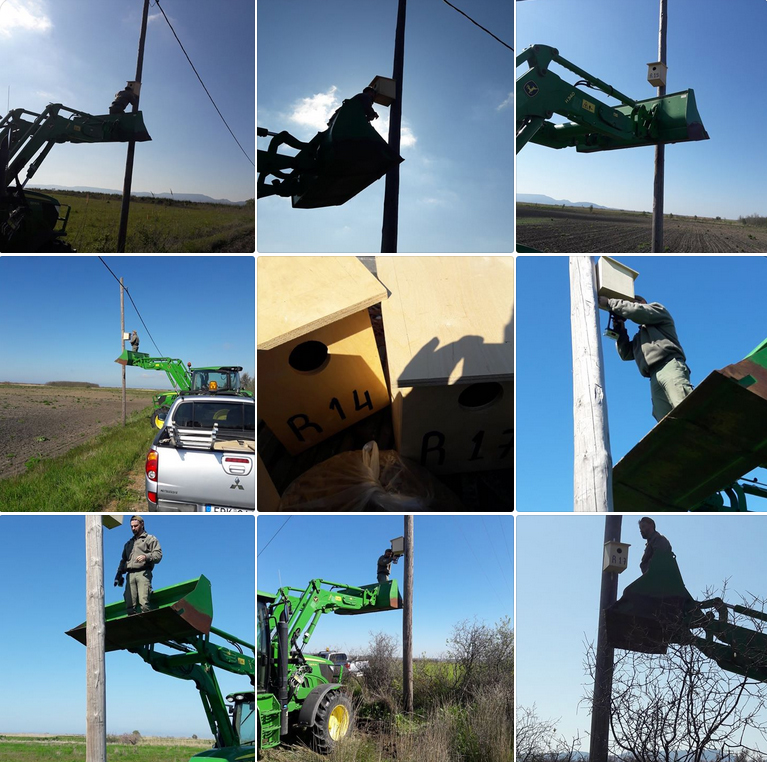
Over the winter, Birdwing commissioned a carpenter to construct new nest-boxes for Kestrels and Rollers at the Evros Delta. In early spring, staff of the Management Body were able to put these up and we are delighted to announce that many of them have already been taken by birds. At the end of April Rollers were beginning to return and we are confident that a high proportion of the boxes will be used again. We are grateful to the staff members for their assistance in putting the boxes up and monitoring them for us, as we cannot be in Greece at this time.
Boxes in the Ismarida/Vistonida area have been reported to have been used by Kestrels and a Little Owl. It is hoped that we will be able to bring you more news of the numbers of breeding pairs and chicks as the season progresses.
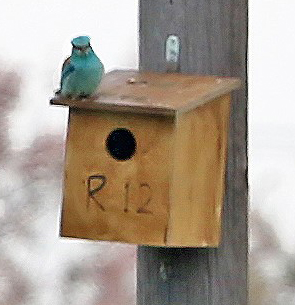
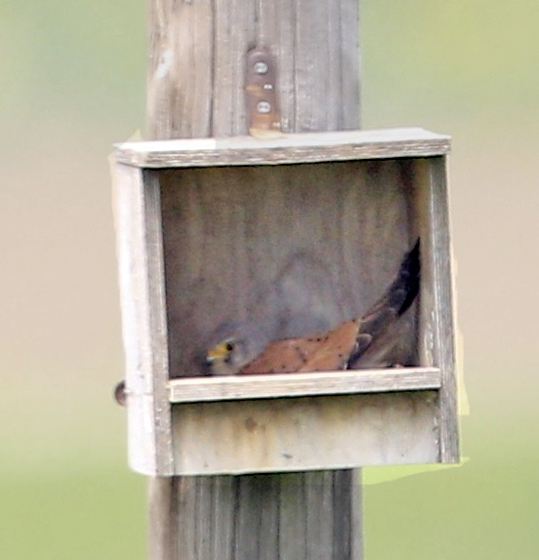
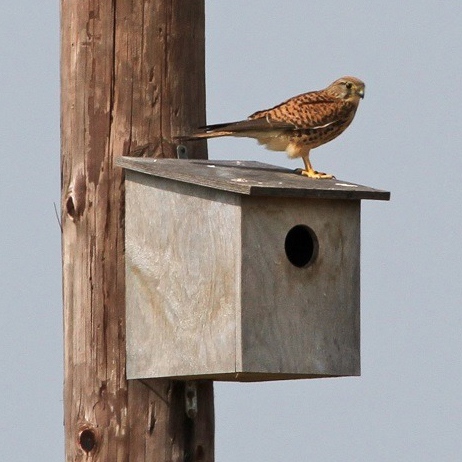
Thanks to Dimitris Kokkinidis and Panagiotis Ioannides for information and photos.
Controversial Environment Bill passed
During the height of the Coronavirus lockdown the Greek government passed a controversial environmental bill, entitled "Modernising Environmental Legislation", which received widespread condemnation from NGOs, conservation organizations such as the Hellenic Ornithological Society, WWF Greece, and the Management bodies of the national parks.
It has been described by some as the ‘Anti-environment’ bill due to its suggested removal of protection laws for Natura 2000 sites across the country and the potential for mining and other industries to use currently protected regions.
- It essentially eliminates the protection of Natura 2000 sites and even promotes mining and hydrocarbon mining in nature conservation areas
- It abolishes the autonomy of the Protected Areas Management Bodies (PAMB)
- It allows for the destruction of the environment in the name of investment projects at will, by consigning control of Environmental Impact Assessments (EIA) to private entities and by imposing tight deadlines for the required opinions/recommendations of the relevant public service departments
- It promotes the reckless expansion of industrial Renewable Energy Sources (RES), especially wind, which have already caused environmental degradation and a financial burden on consumers to ensure excessive profits for investors
- It legalises illegal construction in forestlands and in some cases, within wetlands and streams
- It simplifies solid waste management procedures and does not take measures against the degradation/deterioration of streams from the uncontrolled disposal of urban and industrial waste within them
- It violates Constitutional Provisions, European Directives and International Conventions
The lack of opportunity for scrutiny and opposition to the bill, due to quarantine measures, angered many and there is the potential for the bill to be legally challenged in some way, but the situation is of grave concern to those who value the natural world and who wish to protect it for future generations.
Hard times for migratory birds
April 5th to 6th was a disastrous night for migratory birds. Strong northerly winds and low temperatures followed several days of adverse spring weather and persistent rain that had already exhausted the traveling birds, after their journey of thousands of kilometres over the Sahara Desert and the Mediterranean Sea. All this, with no insects flying, dispersed by the strong wind.
Southerly winds pushed massive migratory flocks northwards across Northern Africa, where they confronted the northern wind streams of the Aegean Sea (around Cyclades Islands), forcing them to turn towards the eastern coast of mainland Greece in order to find a place to rest. That turn affected particularly species that feed on flying insects, especially swallows, martins and swifts, but also flycatchers and other passerines.

On April 6th the morning light revealed a shocking sight: tens of thousands of birds, chilly and exhausted, were unable to move. Swallows and martins had to rest on the ground, on roads, on balconies, on rooftops and any other surface available. Swifts – a purely airborne species that can’t rest on the ground or on wires – found temporary shelter by hiding under eaves or in air ducts. Flycatchers filled parks and gardens in Athens and other cities. All this happened throughout Eastern Greece, from southernmost Crete to northernmost Macedonia. Migratory birds are adapted to adverse conditions and certain losses are expected during their journey. But this specific weather combination was unprecedented and pushed entire populations to their limits. On top of all the hardships that human activity brings for migratory birds – habitat loss, desertification, illegal killing etc. – these losses could prove devastating.

Thousands of people were alarmed and flooded social media with messages, pointing out the condition of the birds and asking for directions. Many hundreds of exhausted birds died due to exhaustion, run over by cars or killed by cats. The overall situation gradually improved and it is hoped that those birds that survived will have breeding success and that the impact will not be too great overall on future populations.
Prize competition!
Prizes to be won!
Can you identify these birds?
If you can, why not enter our competition for a chance to receive beautiful limited edition prints by the award-winning macro photographer Matt Doogue?
Enter by 20th June and, three lucky winners will be selected at random from the correct entrants. Each will receive two mounted prints.
Identify each bird, A1, B1, C1 etc. using its common name in English or Greek [or, even, if you prefer, using its Latin name.]
Good luck!!
How to Enter:
Email your answers at comp@birdwing.eu
or find Birdwing eu on Facebook or Twitter and send us a private message.
Closing date: June 20th, 2020.
All correct entries will be put into a hat and three winners will be picked at random and contacted on Sunday 21st June 2020.
Winners will be announced on Facebook, Twitter and on our website www.birdwing.eu and correct answers will be published at the same time.




See more of Matt Doogue’s amazing shots like these at:
facebook.com/mattsmacro Twitter@MattDoogue
Bird news
The bird news round-up in this issue is another casualty of Covid-19 as lockdown in Greece has inevitably led to far fewer sightings being reported. Here is a summary of information we’ve received.
The month of April was unseasonably cold in Greece and many migrants, having arrived from Africa, found their onward travels halted by low temperatures and snow. This led to the deaths of many swallows and martins throughout the country (see more above). It also led to many Pied and Semi-collared Flycatchers pausing their journey near the sea and around the lakes of Ismarida, Vistonida and the Porto Lagos lagoons for longer than usual.
Early April saw an Arctic Skua (Parasitic Jaeger) chasing gulls along the beach in Porto Lagos, a Cretzschmar's Bunting in Maronia and two Rüppell's Warblers, male and female, also in Maronia.
May has seen an explosion of Rose-coloured Starlings across Northern Greece in many locations including Lake Kerkini where they are feasting on mulberries along the eastern embankment.
There have been several sightings of Great Spotted Cuckoos this month, including two at Ismarida, two around Vistonida and two at Aggelochori close to Thessaloniki.
Early in May more pairs of Rufous Bush Robin took up r esidence near Maronia with four in their usual area. Also around the same time saw the regular arrival of Terek Sandpipers in the lagoon of Kalochori with three seen. As numbers of Egyptian Vultures continue to fall throughout south-east Europe, we are pleased to report three pairs have returned to breed in the area.
esidence near Maronia with four in their usual area. Also around the same time saw the regular arrival of Terek Sandpipers in the lagoon of Kalochori with three seen. As numbers of Egyptian Vultures continue to fall throughout south-east Europe, we are pleased to report three pairs have returned to breed in the area.
In other parts of Greece several rarities have been reported, including a Caspian Plover near Athens and a Finsch’s Wheatear seen in the hills north of Kellis, near Florina, in early May.
Our thanks to Dimitris Kokkinidis for supplying information and for his photo of the Rufous Bush Robin.
Other news
Birdwing donations
Birdwing has recently been promised a second donation of €3000 from SAMINA, a German sleep-solutions company
(www.samina.com/en). This came about because of the continued generosity of Professor Josef Wirth, a long-time Birdwing supporter, who, rather than receiving a fee for this work, chose to ask SAMINA to donate to Birdwing. Josef is pictured here with his wife, Heidi, and son, Alex, a few years ago when their family and friends raised money for Birdwing at special birthday celebrations.
We are incredibly grateful for this collaboration between sleep researcher Josef Wirth and Professor Günther W. Amann-Jennson of SAMINA and would like to express our thanks.
We have also received a donation in remembrance of a long-time Birdwing supporter and lover of Greek birds, Philip Hermes who sadly passed away in October 2018. His friend, Andrew Hendry, sent the donation to honour his memory and requested that the funds be spent in the Kerkini region as it was a place they both visited many times. We had the pleasure of meeting them both when staying at the Hotel Limneo in Chrysohorafa a few years ago.
Thanks again to those individuals who support Birdwing’s work on a regular basis, including Meriel Wilmot-Wright and David Parker.
Environmental education project
In our last newsletter we set out our 20:20 vision, including our ‘raising awareness’ aim. We particularly want to provide people with information and education about birds, wildlife and wider environmental issues and to nurture a love of wildlife in young people. In this time of ecological destruction, we believe that it is vital and urgent that children and young people are encouraged to engage with the natural world and to develop a love of wildlife.
With this aim in mind, prior to Coronavirus lockdown, Birdwing had just agreed to work together with Birdlife Greece/HOS on an exciting new project for children aged 8-14. The project involves creating a nature book that can be used independently with parents or as part of practical programme for groups of children, with stimulating and creative activities
designed to capture children’s imaginations and help them to learn about birds and the environment. The decision was made to pilot the project in Athens and test the materials before publishing and making them available to all regions of Greece.
Obviously, it is difficult currently to make fixed plans for the timetabling of this project, but we are excited to be collaborating in this way and look forward to bringing you more news of its development as the global situation becomes clearer.
Cancellations
The British Birdwatching Fair held at Rutland Water each summer and visited by representatives from Northern Greece has been sadly cancelled this year due to Coronavirus. All spring birdwatching trips to the region were also cancelled due to lockdown measures.
With thanks to all our contributors and to the staff of the Management Bodies of the National Parks for their continued collaborations and to Dimitris Kokkindis, Kostas Papadopoulos, Eleni Makrigianni and Roula Trigou for their help in producing this newsletter.
Thanks for your support! Don't forget to enter our competition!
If you would like to read this newsletter as a pdf, click here.
Global VIsitors to BirdWING.eu
Support Us
Make a donation towards conservation and restoration of bird habitat and wildlife education in Northern Greece.

